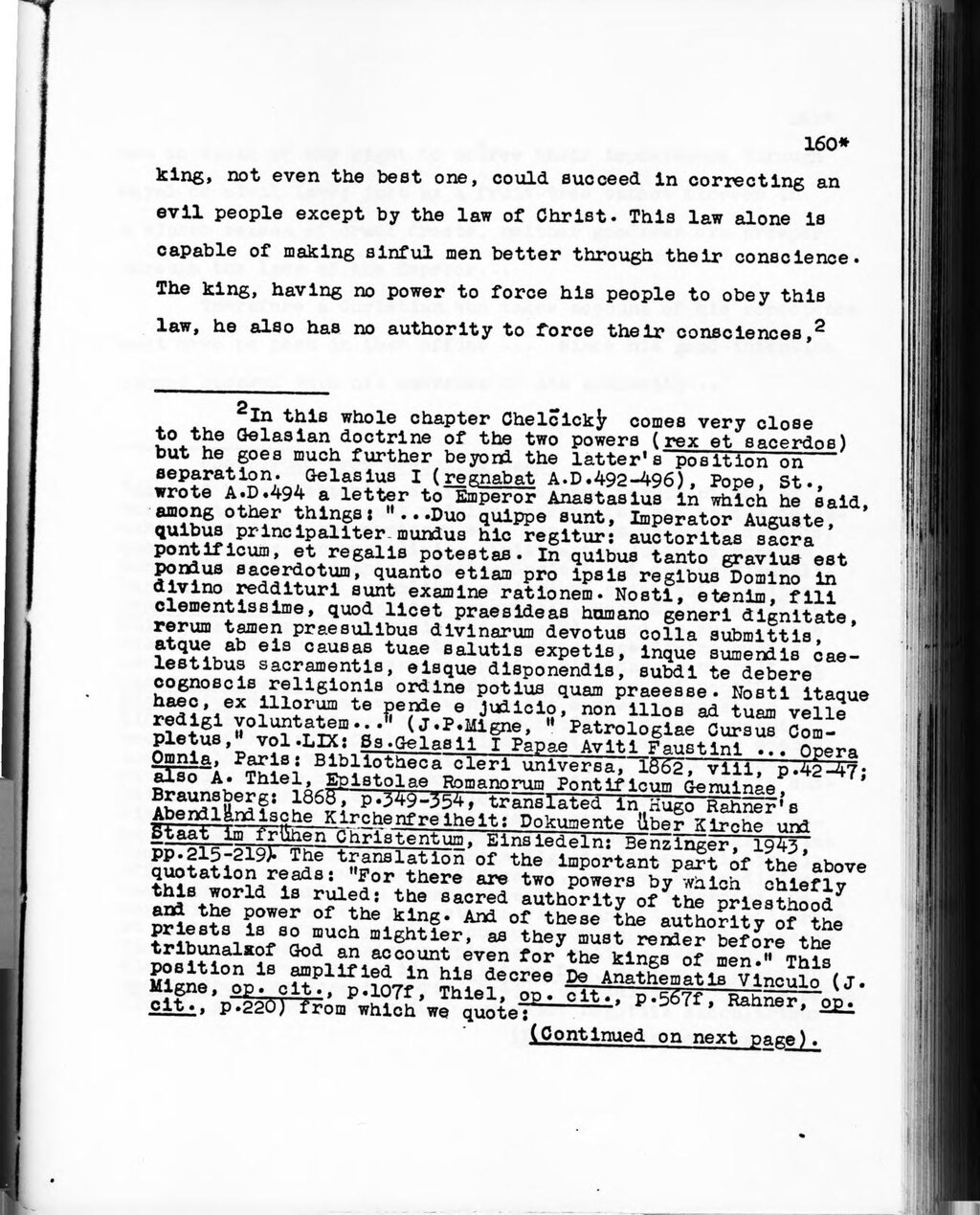160*
king, not even the best one, could succeed in correcting an evil people except by the law of Christ. This law alone is capable of making sinful men better through their conscience. The king, having no power to force his people to obey this law, he also has no authority to force their consciences,2
2 In this whole chapter Chelc̄icky̍ comes very close to the Gelasian doctrine of the two powers (rex et sacerdos) but he goes much further beyond the latter's position on separation. Gelasius I (regnabat A.D.492–496), Pope, St., wrote A.D.494 a letter to Emperor Anastasius in which he said, among other things: ". . .Duo quippe sunt, Imperator Auguste, quibus principaliter mundus hic regitur: auctoritas sacra pontificum, et regalis potestas. In quibus tanto gravius est pondus sacerdotum, quanto etiam pro ipsis regibus Domino in divino reddituri sunt examine rationem. Nosti, etenim, fili clementissime, quod licet praesideas humano generi dignitate, rerum tamen praesulibus divinarum devotus colla submittis, atque ab eis causas tuae salutis expetis, inque sumendis caelestibus sacramentis, eisque disponendis, subdi te debere cognoscis religionis ordine potius quam praeesse. Nosti itaque haec, ex illorum te pende e judicio, non illos ad tuam velle redigi voluntatem. . ." (J.P.Migne, Patrologiae Cursus Completus," vol.LIX: Ss.Gelasii I Papae Aviti Faustini . . . Opera Omnia, Paris: Bibliotheca cleri universa, 1862, viii, p.42–47; also A. Thiel, Epistolae Romanorum Pontificum Genuinae, Braunsberg: 1868, p.349–354, translated in Hugo Rahner's Abendländische Kirchenfreiheit: Dokumente über Kirche und Staat in frühen Christentum, Einsiedeln: Benzinger, 1943, pp.215–219) The translation of the important part of the above quotation reads: "For there are two powers by which chiefly this world is ruled: the sacred authority of the priesthood and the power of the king. And of these the authority of the priests is so much mightier, as they must render before the tribunal of God an account even for the kings of men." This position is amplified in his decree De Anathematis Vinculo (J. Migne, op. cit., p.107f, Thiel, op. cit., p.567f, Rahner, op. cit., p.220) from which we quote:
(Continued on next page).
